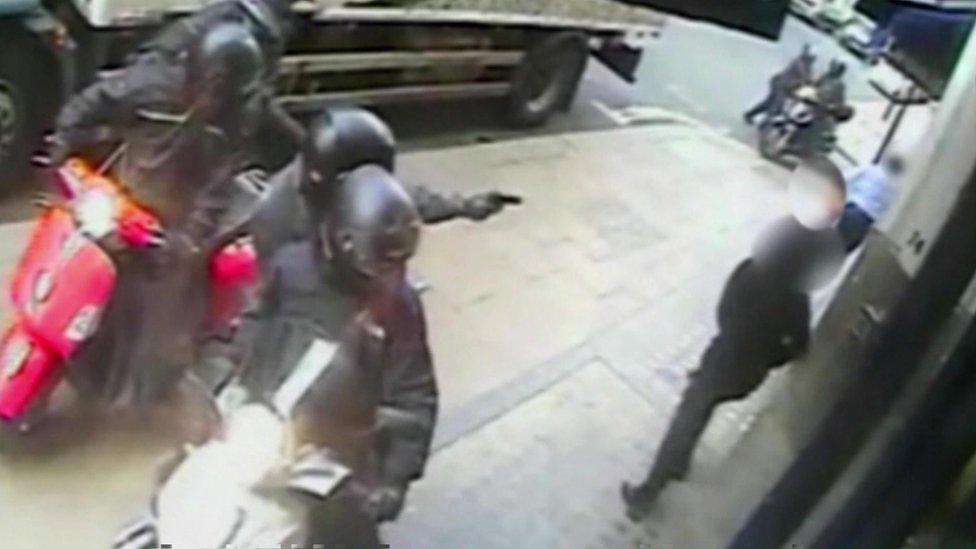Moped crime: Police told not to be scared to chase scooters
- Published
Two people talk about their experiences involving moped crime.
Police officers shouldn't be frightened of ending up in court if they chase suspects on scooters, the policing minister has told Newsbeat.
Nick Hurd MP says the government is "reviewing the law" and says "we do intend to change things" to better protect police.
The Police Federation says its officers are "scared to chase" in case they are charged if suspects are injured.
There has been a huge surge in crimes involving scooters and motorbikes in the last three years.
The Met Police told us there were 24,329 crimes committed using a moped in the year to February 2018.
This compares to 10,170 in the previous 12 months, but they say new tactics are starting to make a difference.
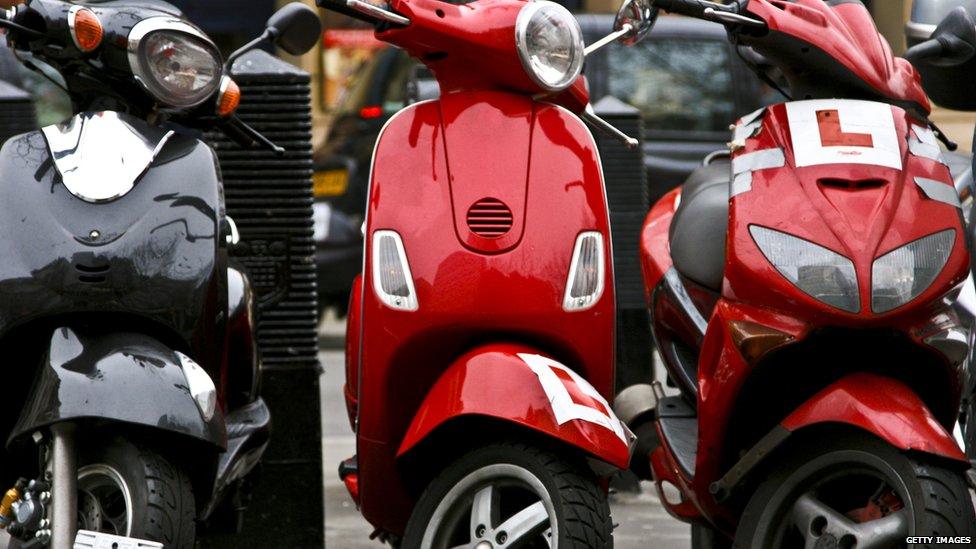
'Of course they are going to be scared'
Police officers have told Newsbeat they fear ending up in court for high-speed chases because they can be prosecuted for careless driving.
The union that represents police officers - the Police Federation - says the government is taking too long to make the changes.
"If they realised their livelihood and liberty were going to be in jeopardy of course they are going to be scared," Tim Rodgers from the Police Federation says.
Responding to that criticism, Nick Hurd MP said their "instinct is to give better protection to police officers" but "it doesn't happen overnight".
The Home Office confirmed to Newsbeat that any change to the law would apply in England, Wales and Scotland.
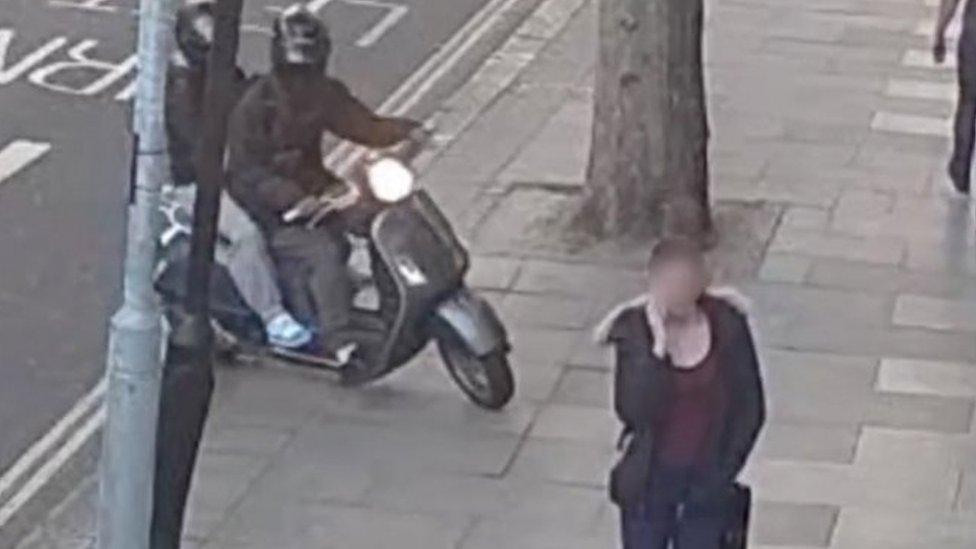
One of the most common moped crimes is snatching phones but some people have been slashed with knives and weapons by muggers.
Some motorcycling groups claim scooter crime is rising because criminals know that police often won't pursue them. The groups also feel there are too many lenient sentences for young criminals.
PC James Ellerton was charged with dangerous driving after he knocked a criminal off a scrambler bike in Liverpool.
He developed severe anxiety and health problems after his suspension from front-line work for 14 months.
He told Newsbeat: "They (officers) are petrified to chase these vehicles through fear of the consequences.
"You've only got to look at what I've gone through, they could be faced with losing their liberty, going to jail, losing their careers."

Pc James Ellerton, aged 29, was cleared of dangerous driving after knocking a criminal off a scrambler bike during a police chase.
Mopeds and scooters: What's the difference?
This type of offence is often referred to as moped crime but often they in fact involve high powered scooters.
A moped has an engine capacity of not more than 50 cc. It won't go any faster than 30mph.
A scooter also has a step-through frame but has an engine size of between 50cc and 150cc.
The Metropolitan Police in London has recently bought new scrambler police bikes to follow suspects on scooters.
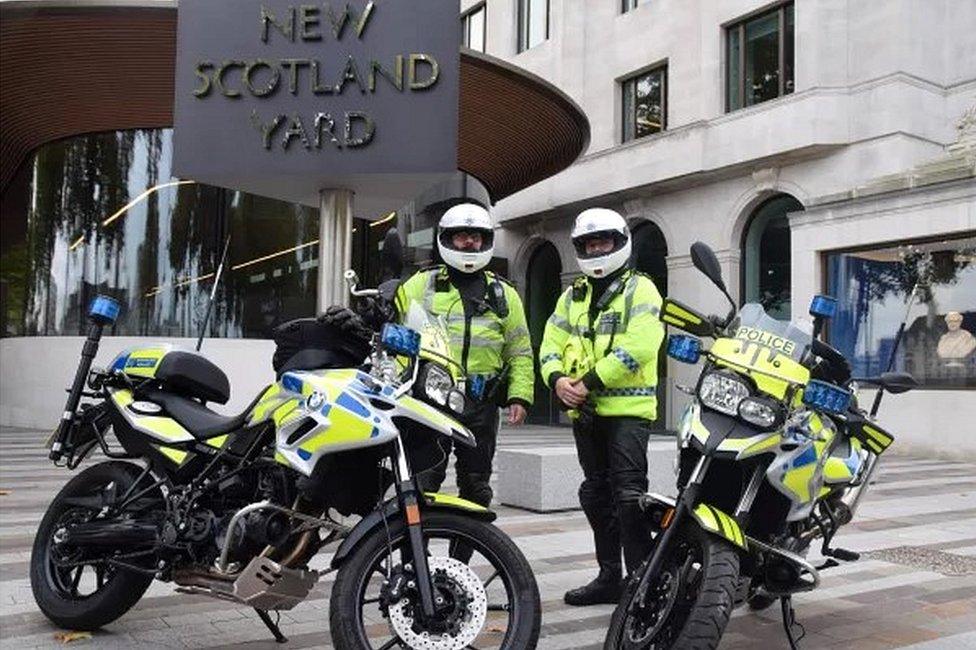
New police motorbikes have no panniers meaning officers can chase suspects more easily.
A National Police Chiefs' Council spokesman said: "Some police forces have seen increases in crime using mopeds and motorcycles, predominately in metropolitan areas, to enable a range of criminal activities including theft and assault.
"Police forces are working with the government and other partners to develop new tactics to address this kind of crime."
The current law means officers can be prosecuted for dangerous driving in the same way as ordinary motorists if there is an accident.
It is the College of Policing's job to issue guidelines to officers on pursuits with scooters.
The rules say chasing scooters "presents additional challenges" compared to a chase involving a car.
They say an officer should receive authorisation from the control room if possible and they should also be specially trained.
But different forces follow the guidelines slightly differently.
The Met Police told us the control room has to be immediately alerted to all pursuits, which must be authorised in all but exceptional circumstances.
Follow Newsbeat on Instagram, external, Facebook, external and Twitter, external.
Listen to Newsbeat live at 12:45 and 17:45 every weekday on BBC Radio 1 and 1Xtra - if you miss us you can listen back here.
- Published31 October 2017
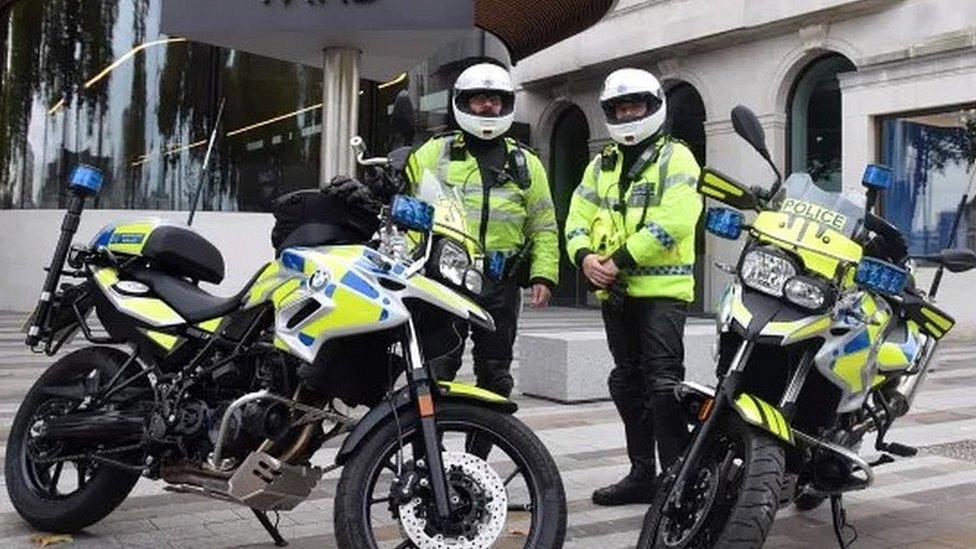
- Published28 July 2017
- Published19 July 2017
